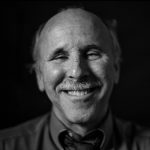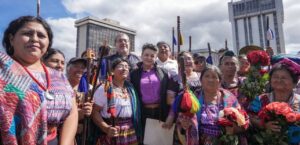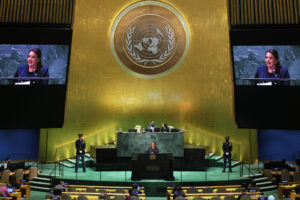This Sunday, February 2, El Salvador will hold first-round presidential elections. There are three leading candidates in this election. The candidate for the left-leaning Farabundo Martí National Liberation Front (FMLN) is current Vice-President Salvador Sánchez Cerén. The candidate for the right-leaning Nationalist Republican Alliance (ARENA) party is San Salvador Mayor Norman Quijano. And former President Antonio Saca is representing a coalition under the umbrella of UNIDAD. Election rules in El Salvador require the winning candidate to gain not a plurality but a 50 percent plus one majority. If no candidate wins a majority, the election goes to a run-off between the two leading candidates.
Sánchez Cerén of the FMLN party holds a lead in most polls, and it is possible that he could win in the first round. If he does not, it is most likely that Sánchez Cerén and Quijano will compete on the second-round to be held on March 9, 2014.
Related: Hear WOLA’s Adam Isacson and Geoff Thale discuss upcoming elections in El Salvador and Costa Rica.
Current Government
Current President Mauricio Funes is a well-known journalist with a left-of-center orientation. He joined the FMLN, the party of the former rebels in El Salvador, in 2008. The next year, he led the FMLN to their first presidential victory since it became a legal party after peace agreements brought an end to the 12-year civil war in 1992. Funes, though left of center, has not always seen eye to eye with the FMLN leadership, though they have collaborated closely on budget and social welfare issues. The Funes government has advanced a number of popular social welfare programs, including ending some school and health care fees, strengthening school lunch programs, and providing inputs to small farmers. Funes initiated a series of institutional reforms in the police, though many of these were reversed in the second half of his term. Crime and the weak economy continue to be the major challenges facing El Salvador, though Funes’ personal approval ratings are high—recent polls in El Salvador give him a 70 percent approval rating. However, El Salvador’s constitution restricts the president to a single five-year term, so current President Mauricio Funes is not running for re-election.
Parties and Candidates
The FMLN is currently the largest political bloc in the National Assembly, though it lost a few seats in the last Assembly elections in 2012. It also lost a number of key mayoralties because of weak candidates, local corruption scandals, and poor management. Its candidate for election, Salvador Sánchez Cerén, is a longtime party leader, one of the original five “comandantes” of the FMLN when it was a guerrilla force. Sánchez Cerén, who began his career as a teacher, has been known as a conciliator between different forces inside the FMLN, but he is generally identified as part of the party’s more ideological “old guard,” whose vision was shaped by Cold War conflicts. Vice Presidential candidate Óscar Ortiz, the mayor of the city of Santa Tecla, is viewed as a reformer within the party.
ARENA is the party of the right, which won every presidential election from 1994 up until Funes’ victory in 2009. It is the second largest bloc in the National Assembly. ARENA is strongly pro-business, and its economic orientation is conservative. Many of its leaders were shaped by the Cold War as well—in fact, its anthem still says that El Salvador will be the “tomb where the reds meet their end.” Its candidate is Norman Quijano, the mayor of San Salvador.
A third candidate in this election is Antonio Saca, El Salvador’s president from 2004 to 2009. After ARENA lost the 2009 Presidential elections, an internal party debate put much of the blame on Saca and his allies in the party. He was expelled on corruption charges. Subsequently, Saca formed his own political group, and broke some National Assembly delegates away from ARENA. Though he leans to the right, Saca and the deputies aligned with him have often allied with the FMLN in the National Assembly to vote against ARENA, offering Saca a degree of political influence. He is running as part of a coalition of small parties, including groups from both the center-left and center-right.
Issues
Candidates are broadly identified with their place in the political spectrum—Sánchez Cerén and the FMLN favor a state role in the economy, Quijano and ARENA are strongly pro-free market and free trade, and Saca has attempted to position himself as a “third force.” But none of the candidates have laid out highly detailed political programs or priorities. Sánchez Cerén has emphasized the social programs of the Funes government and his commitment to deepen them. Quijano has called for economic reform while promising to continue some of the popular Funes programs. Saca has emphasized his independence (though his campaign has gained less traction than many analysts had expected). All of the candidates have been vague about how they would finance their programs, and what sort of tax programs they would pursue.
Crime and insecurity are major issues for voters, but until recently were not a major issue in the campaign. In recent weeks, Quijano has talked about “doing whatever it takes” to stop crime, particularly gang-related crime. He has also opposed the gang truce, brokered with support from officials in the Funes administration, that has lowered homicide rates in the country, but provoked controversy about whether the truce legitimizes gangs or involves hidden pay-offs to criminals. The FMLN has largely avoided the issue.
Allies of the ARENA candidate have recently attempted to link the FMLN and Sánchez Cerén to drug trafficking and pro-Chávez sympathies. In the United Sates, pro-ARENA groups have written opinion pieces and held public forums in Washington arguing that a close advisor to Sánchez Cerén has connections to drug traffickers and to Venezuela. The drug trafficking argument has been very thinly sourced and gained little traction, and the “pro-Venezuela” argument has come off more as a scare tactic than a serious argument about the foreign policy orientation of the FMLN.
Corruption has emerged as a key issue in recent weeks. In the late fall, a scandal over the construction of a major roadway tarred some ARENA party officials. And recently, former ARENA President Francisco Flores, who is now Norman Quijano’s campaign manager, was accused of receiving a $10 million gift from the President of Taiwan that was never accounted for in the national treasury.
Elections
Polls show Sánchez Cerén gaining support, and most recent polls show him with a lead of four to six points over Quijano, with Saca in a distant third place. In order to be declared the winner, election rules in El Salvador require that a candidate win a 50 percent plus one majority. If no candidate wins this majority, the election goes to a run-off between the two leading candidates. Sánchez Cerén could win a majority, depending on voter turnout, but if there is a run-off, it will likely be Sánchez Cerén and Quijano facing each other in a second round on March 9. In a second round, Saca’s endorsement will be important for both candidates; he will seek political influence in return for his support. But no matter who the candidate endorses, much of Saca’s base will likely turn to Quijano, improving Quijano’s chances of victory in a second round.
For the first time, Salvadorans living abroad will be able to vote in the elections. This is an important recognition of the importance of the Salvadoran émigré community, although in fact only a few thousand citizens have registered to vote from abroad.
The U.S. Role
The United States remains a powerful actor in El Salvador–it is a major trade partner, and home to hundreds of thousands of Salvadoran émigrés, who send nearly $4 billion in remittances every year[1]. The U.S. was the major backer of the Salvadoran government during the civil war, providing military and economic assistance along with training and advising for Salvadoran troops. Today, through the Millenium Challenge Account, the United States provides substantial economic assistance to El Salvador. The views of the U.S. Embassy, the State Department, and interested Congressional offices often carry weight. In the past, the U.S government and Members of Congress have made statements viewed as supporting ARENA candidates for office, although the U.S. government was careful to be perceived as neutral in the 2009 elections that brought Mauricio Funes to office.
In this election, Ambassador Mari Carmen Aponte has said publicly that the U.S. will work with whoever is chosen by the Salvadoran people, and she recently reiterated this view following a letter from 47 Members of Congress urging U.S. neutrality. As noted above, former Reagan era State Department official Elliott Abrams has led an effort—in a Washington Post op-ed and in several briefings and public events—to link the FMLN to drug trafficking, and he has urged the U.S. government to take a public position critical of the FMLN. U.S. officials have resisted this demand, and remained officially neutral.
Related: Geoff Thale sets the record straight about drug trafficking in El Salvador.
Looking Ahead
Whoever wins in El Salvador will face daunting challenges. The Salvadoran economy is weak, and growth in 2014 is predicted to be under 3 percent[2]. Stimulating growth and investment will be a major challenge; though the left and the right may have different ideas about how to do that, both will have to confront the problem. Crime and insecurity will continue to be a major issue—though homicide rates have dropped since the gang truce, murder rates are still high, and extortion and other forms of crime are widespread. Drug-related violence continues to be a problem as well, particularly in the ports and along the borders.
Institutional reforms to deal with both management and corruption issues in the police will need to be addressed as well. Finally, rule of law issues will confront the next president. Corruption cases that have recently emerged suggest long-standing problems, and the Attorney General and the next government will have to address corruption issues through both investigations and reforms. El Salvador’s Constitutional Court could well overturn the 1994 amnesty law that prevents prosecutions of civil war era human rights abuses, and the Attorney General and the government will have to develop a strategy to move forward with prosecutions. The next government will have to lead the country through major political and economic difficulties in the years ahead.
Additional Resources:
- For another helpful view, see the piece by WOLA’s colleague Linda Garrett of the Center for Democracy in the Americas.
- Podcast: Elections in El Salvador and Costa Rica, January 2014
- Analyzing the Gang Truce in El Salvador, March 2013
- Amnesty under Fire in El Salvador: Legal Challenges and Political Implications, October 2013
- WOLA’s Letter to the Editor About Drug Trafficking in El Salvador, January 2014
Contact:
Jessamine Bartley-Matthews
WOLA Communications Assistant
(202) 797-2171
press@wola.org

 Geoff Thale
Geoff Thale

